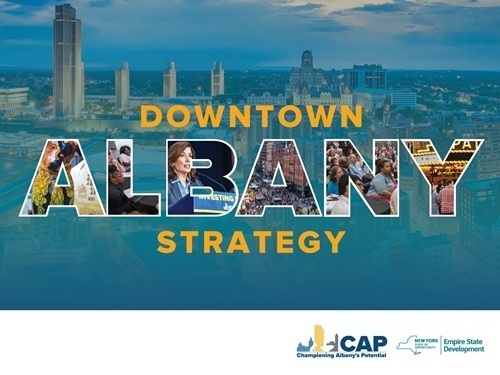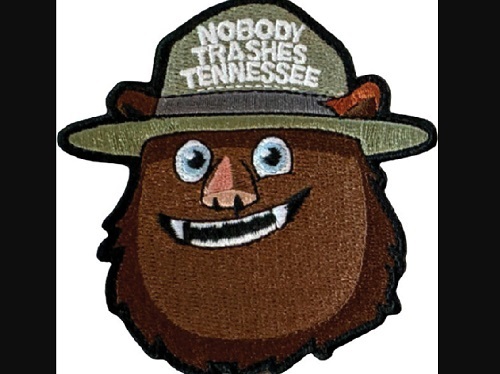The Tennessee Department of Transportation recently introduced a new “trash patch” for Girl and Boy Scout troops that conduct litter cleanups in their communities.
[Above image by Tennessee DOT]
Launched in 2023, the patch program – part of the agency’s Nobody Trashes Tennessee litter prevention campaign – features “Trashsquatch,” a litter prevention “mascot” that is “on a mission” to end littering statewide.

“We launched our patch program last year and it was widely received by scout groups throughout the state,” said Brittany Morris, Tennessee DOT’s transportation program supervisor, in a statement. “As we continue to expand our youth outreach, the new Trashsquatch patch offers another incentive to those that participated in 2023, to join us once again, especially during No Trash November.”
While scouts may conduct their cleanup and access educational resources all year long, the new patch is being rolled out just in time for the agency’s “No Trash November” initiative. In its fourth year, “No Trash November” encourages state residents of all ages to participate in cleanup events in their communities.
“Last year’s No Trash November campaign included more than 150 events with over 2,200 volunteers who collected more than 86,000 pounds of litter from the state’s roadways,” said Morris. “This year, with the help of participating scouts – and with Trashsquatch cheering them on – we aim to grow the initiative’s reach even more.”
Currently, all three Girl Scout councils and all six Boy Scouts of America councils serving Tennessee are working with the agency as part of its litter prevention education and patch program. Additional youth service groups with patch programs are also welcome to participate, Tennessee DOT noted, adding that the patches are provided following the cleanups at no cost to the participating organizations or individual scouts.
Other state departments of transportation use similar youth-focused initiatives as part of their respective statewide litter cleanup programs.

For example, the Pennsylvania Department of Transportation and volunteer-based education organization Keep Pennsylvania Beautiful (KPB) announced in September the 2024-2025 cohort of “Young Ambassadors of Pennsylvania” – a program launched by the agency in 2021 as a way to grow the next generation of leaders and help keep communities statewide be free of litter.
PennDOT conducted the Pennsylvania Litter Research Study from 2018 through 2019 along with the Pennsylvania Department of Environmental Protection, Keep America Beautiful, and KPB, to determine the impact and removal cost of litter along state roadways – which, at the time, came to $13 million annually for the agency alone and $68 million every year for city governments across the state.
The study also recommended creating a youth education and outreach program to help reduce littering, which resulted in the creation of the “Young Ambassadors” program.
KPB provides education and training to program participants on topics related to the impacts of litter, litter prevention, waste management and recycling, civic engagement and related public policy, volunteer management, and social media marketing.
In May, the Utah Department of Transportation launched a new volunteer litter removal program called “Keeping Utah Beautiful” – a program designed to make it easy for members of the public to go online and sign up for a one-time cleanup of state roads.
The agency said these volunteer cleanups will supplement the work of Utah DOT crews who regularly pick up litter statewide. To ensure volunteer safety, “Keeping Utah Beautiful” participants will not clean interstates or some state routes, the Utah DOT stressed – and requires that program volunteers be a minimum 14 years of age.
That same month, the Oklahoma Department of Transportation and Missouri Department of Transportation announced the winners of their respective 2024 “trash” contests; poster-making and trash-can decoration campaigns involving elementary though high school students in order to help raise awareness regarding roadway litter removal needs.
 States
States
TxDOT Updates Artificial Intelligence Strategic Plan
February 27, 2026 States
States

